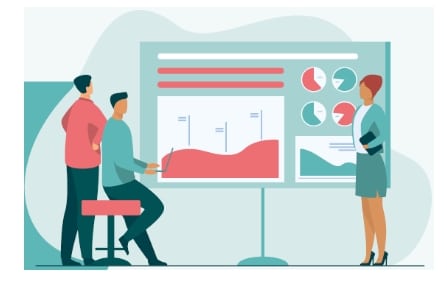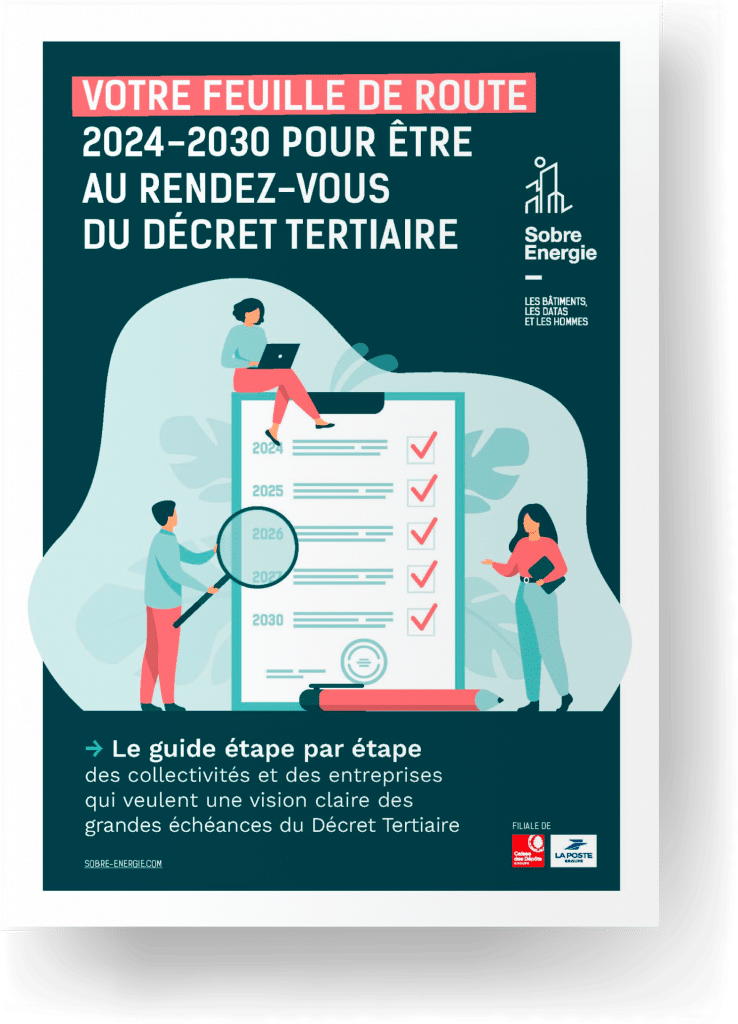ADEME recently delivered* key figures on the energy performance of the French tertiary sector since 2020. This park represents 1.2 billion m², of which 996 million m² are subject to the Tertiary Eco Energy Decree.
Among those subject to it, 57% have carried out their consumption declaration procedures on the ADEME OPERAT platform since 2021.
The evolution of energy performance since 2020
According to ADEME statistics on OPERAT*, the top 3 most consuming sectors in 2021 are as follows: healthcare buildings, offices and educational buildings
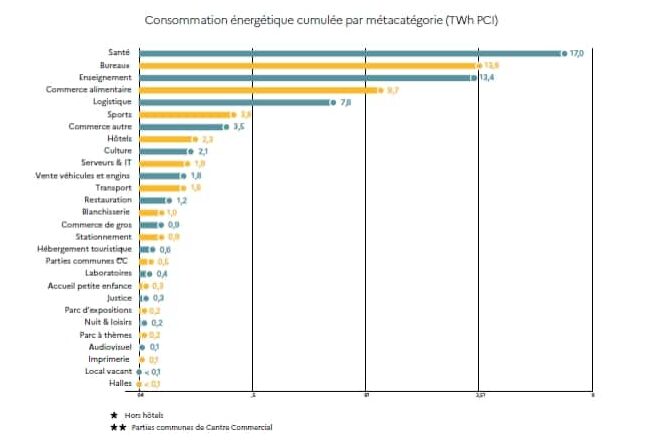
Broken down in surface consumption, the trend is towards a decrease for the main declared tertiary activity sectors: after a post-covid rebound in 2021, average consumption decreases in 2022, a year marked by a sharp increase in energy prices. energy and the launch of the energy sobriety plan on the part of the government. With the exception of the hotel sector:
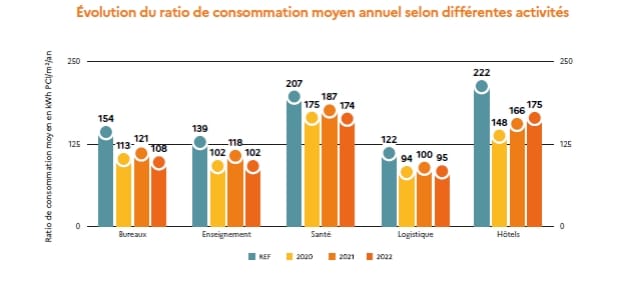
For comparison, the latest 2024 barometer of energy performance from the OID (Sustainable Real Estate Observatory) also highlights this trend:
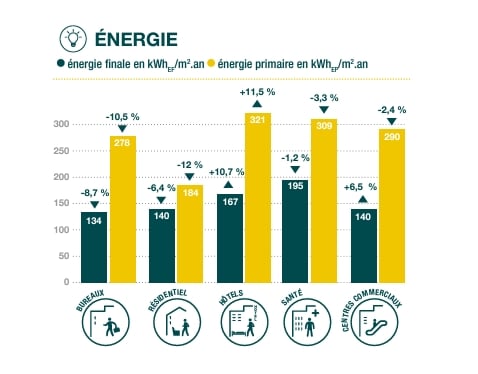
How to comply with the Tertiary Decree?
Promulgated as part of the Elan law in 2018, the Tertiary Decree requires owners and operators of tertiary buildings to reduce their energy consumption significantly in the years to come. This objective is part of a broader approach to reducing greenhouse gas emissions and energy transition in France.
Ultimately, the Tertiary Decree sets for all those subject to a reduction objective in final energy consumption, to be achieved in absolute value or relative value compared to a reference year chosen between 2010 and 2019:
- 40% by 2030
- 50% by 2040
- 60% by 2050
Consumption for the year 2023 must be declared before September 30, 2024 on the Ademe OPERAT platform.
A strengthening regulatory context
Mastering your energy strategy is becoming essential in a regulatory context that is strengthening (Tertiary Decree, BACS Decree, APER law) and energy prices are on the rise for a long time.
BACS decree
The BACS (Building Automation & Control Systems) Decree was published in July 2020 and requires the installation of building automation and control systems GTB (Technical Building Management) for tertiary buildings. This decree aims to improve the energy performance of buildings by making it compulsory to install systems allowing the management, monitoring and optimization of energy consumption.
The main obligations of the decree include:
- The installation of a BACS system for new buildings or during major renovations.
- The integration of devices allowing the automatic regulation of heating, ventilation, air conditioning (HVAC), and lighting.
- The implementation of management systems to monitor energy consumption in real time, which facilitates the identification of areas for energy savings.
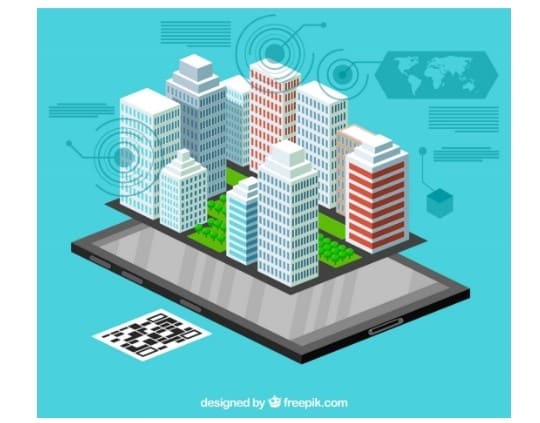
The APER Law
The APER Law (Acceleration of Renewable Energy Production), adopted in 2023, aims to simplify and accelerate the deployment of renewable energies in France, including in the tertiary sector. This law is designed to facilitate the installation of renewable energy production devices, such as photovoltaic panels, on tertiary buildings.
Key measures of the APER law include:
- Simplification of administrative procedures for the installation of solar panels on the roofs of tertiary buildings.
- The possibility of using more unexploited surfaces for the production of renewable energies, including car parks and building facades.
- Acceleration of network connection procedures for renewable energy installations.
This law allows players in the tertiary sector to engage more easily in the production of green energy, contributing to the reduction of the sector's carbon footprint.
The LOM Law
The LOM Law (Mobility Orientation Law), promulgated in December 2019, is mainly focused on sustainable mobility. However, it also impacts the tertiary sector, in particular through its provisions on electric mobility. It requires tertiary buildings to adapt to new requirements in terms of charging stations for electric vehicles.
The main measures of the LOM law in this area are:
- The obligation to install charging infrastructure for electric vehicles in the car parks of tertiary buildings with more than 20 spaces.
- The promotion of car sharing and soft mobility within companies, with incentives for the establishment of electric vehicle fleets.
- Support for the installation of photovoltaic panels on buildings to supply renewable energy to charging stations.
These measures encourage a transition towards greener mobility and are part of a global approach to reducing the carbon footprint of tertiary buildings.
Since 2022, the increase in energy prices has encouraged companies to accelerate their energy sobriety strategy by carrying out audits to prioritize energy renovation work and monitoring the consumption of their tertiary buildings through a tool piloting.
